WashU researchers are studying how the brain perceives, processes, and remembers everyday events.
The main events: How scenes from life shape consciousness, build memories


WashU researchers are studying how the brain perceives, processes, and remembers everyday events.

A new study from the Hengen Lab published in Neuron takes a closer look how diseases like Alzheimer’s affect cell teamwork. To function properly, our brains need to maintain balance—a homeostatic set-point called criticality. “It’s as excitable as the system can be without losing control,” Keith Hengen, PhD, Assistant Professor of Biology, explained. “At criticality, patterns of all […]

Faculty and university leadership selected Wesley Wagner, a graduate student in chemistry, as the winner of the 2024 Dean’s Award for Graduate Research Excellence. Six additional graduate students were also recognized.

What happens when biological and artificial intelligence meet? Since its launch in 2022 as a multiyear project funded by the Incubator for Transdisciplinary Futures, Toward a Synergy Between Artificial Intelligence and Neuroscience has explored the intersections between the human brain and the novel AI networks that seek to emulate its functions. On May 15, that work culminated in […]

Researchers in The Department of Psychological & Brain Sciences are using cutting-edge techniques to help us weather the challenges of everyday life. Human behaviors and emotions can be as complex as any force of nature. From our biggest life choices to the subtle thoughts we barely notice, our minds are always at work. Inspired by […]

In an age of GoFundMe campaigns, it’s easier than ever to help family, friends, and even strangers in times of need. It’s also easy to look the other way. “Most people see themselves as cooperative and generous, but there’s a cost to helping people who can’t reciprocate,” said Pascal Boyer, PhD, the Henry Luce Professor of […]
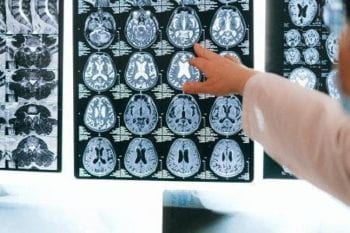
Trying to find a needle in a haystack? A new study by researchers in the Department of Psychological & Brain Sciences suggests a little distraction could be a good thing. Whether we’re looking for our favorite cereal at the grocery store or searching for our car in the parking lot, most people know the challenge […]

Sleep is a fundamental need, just like food or water. “You’ll die without it,” said Keith Hengen, PhD, an assistant professor of biology at Washington University in St. Louis. But what does sleep actually accomplish? For years, the best researchers could say is that sleep reduces sleepiness — hardly a satisfying explanation for a basic requirement […]

A team of psychological and brain sciences researchers has come up with a new way to study the brain’s ability to navigate life — no brain scans required. Researchers in the Department of Psychological & Brain Sciences have developed a question-and-answer experiment to study how people build cognitive maps, mental models of the world that […]

A study by researchers in the Linguistics Program and the Department of Psychological & Brain Sciences finds that the race of a speaker doesn’t affect comprehension — challenging a prominent study on the topic. When we have a face-to-face conversation with someone, we’re taking in more than just the sound of their voice. “It’s generally […]

Older adults spend less time worrying and more time staying on task, according to a new study by WashU’s psychological and brain sciences researchers. We’re all guilty of letting our minds wander when we’re supposed to be doing something else. A little distraction is likely inevitable. But a new study led by Matt Welhaf, PhD, […]
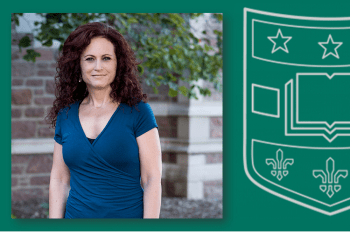
In her nonprofit therapy practice, Rebecca Lester uses her anthropological findings to treat complicated mental disorders. Through her research on eating disorders, religious conversions, and polyamory, Rebecca Lester, PhD has gained an intimate understanding of the complex relationship between cultural practice and personal development. For the chair and professor of sociocultural anthropology, however, it’s not enough to […]
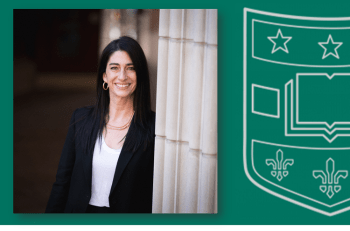
A new study involving more than 200 St. Louis-area adults sheds light on the goals, motivations, and strategies involved in managing emotions during depression. People who struggle with depression don’t simply give in to their negative emotions. A new study found that, compared to healthy adults, people with major depressive disorder are more likely to […]
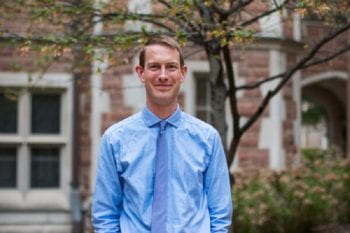
A new study co-authored by Patrick Hill, PhD, associate professor of psychological and brain sciences, offers an important message for our times: A sense of purpose in life — whether it’s a high-minded quest to make a difference or a simple hobby with personal meaning — can offer potent protection against loneliness. “Loneliness is known to be one […]
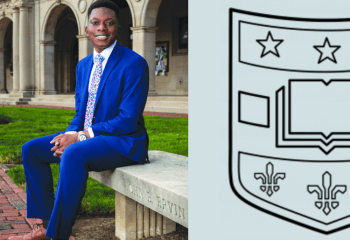
Ephraim Oyetunji likes a good challenge. “Everything is a mystery to be solved,” he said. A senior biology major on the neuroscience track, Oyetunji quickly established himself as a standout researcher. He’s been named a WUSTL ENDURE scholar, a Hope Center Scholar, and a recipient of the prestigious Barry Goldwater Scholarship. Oyetunji discussed his path […]
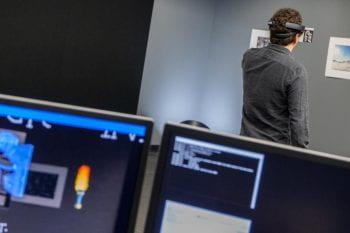
As part of the Incubator for Transdisciplinary Futures, faculty members across Arts & Sciences are working together to decode the relationship between technology and the mind. Can artificial intelligence help us better understand the mechanics of the human brain? How can educators deploy virtual and augmented reality in the classroom? What does modern mindfulness look […]
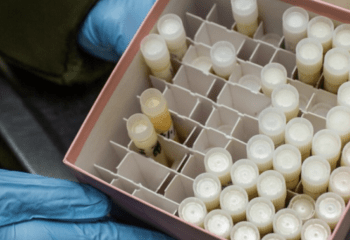
A new Leakey Foundation award will support research to better understand how certain hormones in breast milk contribute to brain growth in humans and primates. E.A. Quinn, PhD, associate professor of biological anthropology, has received a grant from the Leakey Foundation to study how neurotropic hormones in human and primate milk affect brain growth. Humans have very […]
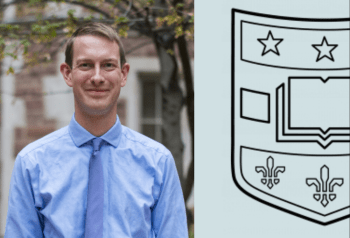
A new study co-authored by Patrick Hill, PhD, associate professor of psychological and brain sciences, offers an important message for our times: A sense of purpose in life — whether it’s a high-minded quest to make a difference or a simple hobby with personal meaning — can offer potent protection against loneliness. “Loneliness is known to be one […]
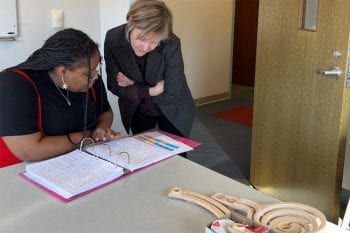
The revamped office will help students across academic disciplines gain research experience and build relationships with faculty mentors.
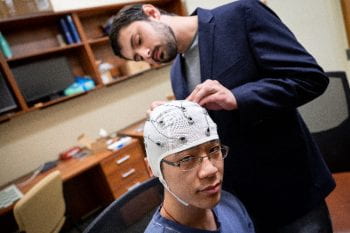
Todd Braver, PhD, professor of psychological and brain sciences, and ShiNung Ching, PhD, associate professor of electrical and systems engineering, have received a grant from the National Institutes of Health (NIH) for more than $400,000 to investigate a new way to improve thinking and focus — work that could one day help restore short-term memory in older […]
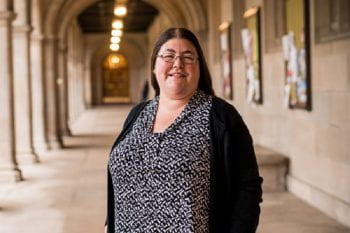
The relentless neurological disease amyotrophic lateral sclerosis (ALS) eventually shuts down the entire body, but the devastation starts at a molecular level. Over the years, researchers have linked ALS, also called Lou Gehrig’s disease, to a handful of proteins that don’t function properly because of genetic mutations. Over time, these distorted or “misfolded” proteins can […]
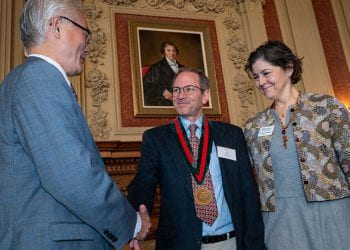
Erik Herzog, PhD, a professor of biology, was installed Oct. 18 as the Viktor Hamburger Distinguished Professor in Arts & Sciences at Washington University in St. Louis. The program included welcoming remarks by Feng Sheng Hu, dean of Arts & Sciences and the Lucille P. Markey Distinguished Professor; an introduction by Jonathan Losos, the William H. […]
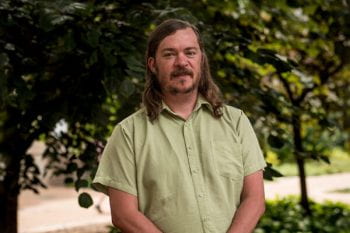
Bruce Carlson, PhD, professor of biology, was recently awarded $980,000 by the National Science Foundation to study neuronal plasticity and the evolvability of behavior. Carlson and his team are examining how changes in an animal’s behavior alters the sensory feedback the animal receives, in turn leading to modifications to the animal’s brain. Mormyrid weakly electric fish, the […]

While conducting fieldwork at a lab at Princeton University, Talia Dan-Cohen, associate professor of sociocultural anthropology at Washington University in St. Louis, observed a common but perplexing problem. For her book A Simpler Life: Synthetic Biological Experiments, Dan-Cohen was tracking the work of practitioners in the developing field of synthetic biology, and she noticed two researchers discussing […]

Chemist Jennifer Heemstra will join the Arts & Sciences faculty this July as the Charles Allen Thomas Professor of Chemistry. Currently a faculty member and director of faculty recruiting and development at Emory University, Heemstra is a highly regarded researcher whose work focuses on harnessing the molecular recognition and self-assembly properties of nucleic acids for applications in biosensing and […]

Patrick Hill investigates the effects of living purposefully on health, wealth, and wellness – and how to maintain one’s purpose through life’s transitions. Whether you spend your weekdays as an employee, retiree, caretaker, student, or something else entirely, a typical morning likely includes some familiar components. Wake up, perhaps have a cup of coffee, and […]

The WUSTL ENDURE program, which hosts the annual symposium, partners with groups across WashU and local institutions to attract top talent, provide training and mentorship opportunities, and improve the diversity of the neuroscience field. “What would happen if you lost your heart?” Ephraim Oyetunji, a rising junior studying neuroscience in the Department of Biology and […]
In this Q&A, Deanna Barch, PhD discusses her path to a research career, the importance of interdisciplinary inquiry in health and medicine, and the big questions that drive her work. Barch was recently elected to the National Academy of Medicine. A few weeks ago, on a late Friday afternoon just as the work week was […]
The TV show “Survivor,” now in its 39th season, has spawned hosts of spin-offs and adaptations. Most cater to reality-TV lovers worldwide, but one surprising variation has become part of the toolbox researchers use to understand the effects of bullying on adolescents. Bullying is known to be a risk factor for depression, especially among young […]
Chemists in Arts & Sciences are working to engineer proteins that may help counter devastating neurodegenerative diseases such as Alzheimer’s, Parkinson’s, and ALS. The proteins in our bodies have evolved over many millions of years to reach their current diversity of functions, spurring on the necessary chemical reactions occurring within our cells, and protecting us […]